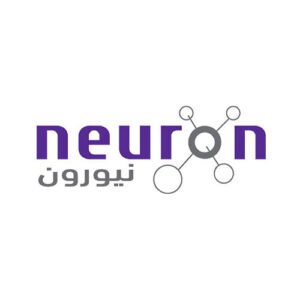Neurology Hospital in Dubai | Neurological Disorders
Neurology Clinic in Dubai
Highly trained and experienced neurologists dedicated to providing the highest quality of care to our patients. From treatment for neurological conditions, central nervous system issues such as multiple sclerosis to providing a second opinion, we are here to help. Our state of the art hospital Dubai is equipped with the latest in medical technology to diagnose and treat a wide range of neurological conditions.
World Class
Neurology Expertise
As a multi disciplinary hospital in Dubai offering comprehensive care, our neurology department is part of a wider team that is highly experienced in working with neurological disorders and the central nervous system. We believe that compassionate care is just as important as making an accurate diagnosis and our world class team is fully supported by a full suite of 21st century medical technology that includes 3d scanning and robotic surgery.
Valiant Clinic & Hospital's Neurology department treats all brain spinal cord disorders and conditions. There is a strong focus on collaborating with other departments in the hospital to provide comprehensive care for patients with conditions that affect the brain and spinal cord.

The neurology department may work alongside the neurosurgery hospital department to diagnose and treat conditions such as benign and malignant tumors, adult and pediatric hydrocephalus, and cerebrovascular disease.
In cases where surgery is necessary, the neurology department may also collaborate with the spinal surgery and brain surgery departments to provide the best possible care for patients. The neurology department may also work with the general surgery department to coordinate care for patients who require procedures such as shunt placement for hydrocephalus.
MEET OUR NEUROLOGY & NEUROSURGERY TEAM
- All
- Neurology
- Neurosurgery
HOW OUR NEUROLOGY DEPARTMENT CAN HELP:

Arteriovenous Malformation
An arteriovenous malformation (AVM) is a tangle of abnormal blood vessels in the brain or spinal cord, this can have significant impact on the central nervous system.
These abnormal blood vessels may have a higher risk of bleeding or rupture, which can lead to stroke or other serious complications. AVMs are present at birth and are thought to be caused by abnormal development of blood vessels in the brain or spinal cord during fetal development.

Brain Aneurysm
The brain is a vital component in the body's central nervous system. An aneurysm is a bulge or ballooning in the wall of a blood vessel.
In the brain, an aneurysm can occur in any blood vessel, but they are most commonly found in the arteries at the base of the brain. If an aneurysm ruptures, it can cause bleeding in the brain (hemorrhagic stroke), which can be life-threatening.
Our neurological hospital Dubai has extensive experience in dealing diagnosing and treating this, using world class state of the art equipment to provide healthcare services delivered by healthcare professionals for all sorts of neurodegenerative disorders and help safeguard your physical and mental health.

Carpal, Cubital & Tarsal tunnel Syndrome
Carpal tunnel syndrome, cubital tunnel syndrome, and tarsal tunnel syndrome are all conditions that involve the compression of a nerve in a specific area of the body.
Diagnosis is undertaken via a variety of tests for these conditions, including a physical examination, imaging tests such as an MRI, and nerve conduction studies, which measure the speed and strength of nerve signals.
Depending on the severity of the condition, a neurologist may recommend a variety of treatment options, such as splinting or bracing to stabilize the affected area, physical therapy to improve strength and mobility, and medications to reduce inflammation and pain. In more severe cases, surgery may be necessary to release the compressed nerve.
These conditions can cause a variety of symptoms, such as numbness, tingling, weakness, and pain. A neurologist can help manage these symptoms through the use of medications and other therapies.
We have extensive experience working with state of the art equipment and world class healthcare professionals who work with patients to provide education and advice on how to manage the condition and prevent further nerve compression, such as by avoiding certain activities or positions that may exacerbate the condition.

Cerebral Hemorrhages
Diagnose and treat spontaneous intracerebral hemorrhage and ischemic stroke caused by hypertension and atherosclerosis, as well as subarachnoid hemorrhage caused by ruptured Berry aneurysms.
Emergency surgery for clot evacuation, decompression of major vessel ischemic strokes, clipping of ruptured aneurysms, and endovascular coiling of aneurysms by specialist Interventional Radiology are all options for treatment.

Cervical, thoracic & lumber spine herniated discs
If a patient with a slipped disc is referred to a neurologist, the neurologist will be responsible for evaluating the patient's condition and developing a treatment plan.
All the doctors and medical staff at our hospital Dubai have access to state of the art world class equipment operated by highly qualified doctors and healthcare professionals dedicated to your physical health and mental health.
This may involve ordering additional tests, such as imaging studies, and recommending various treatment options, such as medications, physical therapy, or surgery. The neurologist will also be responsible for managing the patient's symptoms and coordinating care with other members of the healthcare team as needed.

Compressions of the spinal cord
Compressions of the spinal cord are conditions in which the spinal cord becomes squeezed or pressed upon by surrounding structures, such as bone or soft tissue.
This can occur due to various reasons, including spinal stenosis (narrowing of the spinal canal), herniated discs, fractures, or tumors. Compressions of the spinal cord can cause a variety of symptoms, such as weakness, numbness, and pain in the arms or legs. In severe cases, they can lead to paralysis.

Condition of sciatic nerve
The sciatic nerve is the largest nerve in the body, running from the lower back through the buttocks and down the legs. Sciatic nerve pain, also known as sciatica, occurs when the sciatic nerve becomes compressed or irritated.
This can cause a variety of symptoms, such as pain, tingling, numbness, and weakness in the lower back, buttocks, and legs.
There are several potential causes of sciatica, including herniated discs, spinal stenosis (narrowing of the spinal canal), and degenerative disc disease. A neurologist can help diagnose and treat sciatica by performing MRI & CT scans and recommending treatment such as surgery.

Critical Care and Trauma
we are equipped to provide critical care and support for patients who have suffered from traumatic injuries to the nervous system, such as a spinal cord injury, traumatic brain injury, or a severe stroke. Our team of specialist neurologists, neurosurgeons, and other healthcare professionals are dedicated to providing the best possible care to help our patients recover as much function as possible.
We offer advanced diagnostic services and life-saving interventions, such as surgery, to address the immediate needs of our patients. For those who require ongoing care, our rehabilitation team is on hand to provide support and help patients achieve the best possible outcome.
In cases of severe injury, we provide intensive care support to manage any secondary complications and ensure the patient's stability. Our goal is to provide the highest level of care to help our patients overcome the challenges posed by critical care and trauma, and to give them the best possible chance for recovery.

Diseases of the Peripheral Nerves
Diagnosis and treatment of peripheral nerve entrapment syndromes, such as carpal tunnel syndrome, tarsal tunnel syndrome, and cubital tunnel syndrome, as well as decompressive surgery.

Headaches, Back Pains & Cervical Pains

Head & Spine Injuries

Hydrocephalus
Diagnosis and treatment of all types of hydrocephalus in the elderly and children, as well as newborn spine abnormalities and myelomeningocele. Shunting of Cerebrospinal Fluid as needed, as well as surgical correction of newborn spinal abnormalities, are all part of the treatment plan.

Neurosurgery in Children
Neurologists work closely with neurosurgeons to diagnose and manage neurological conditions in children. This may involve performing neurological exams, ordering imaging studies, and prescribing medications to help manage symptoms.
In addition, a neurologist can provide ongoing care and support for children who have undergone neurosurgery. This may involve coordinating with other members of the healthcare team, such as physical therapists and rehabilitation specialists, to ensure that the child receives the best possible care. The neurologist may also be responsible for monitoring the child's progress and adjusting treatment as needed.

Non-Harmful Intracranial Hypertension
Intracranial hypertension, also known as increased intracranial pressure (ICP), is a condition in which the pressure inside the skull becomes too high. This can be caused by a variety of factors, including bleeding in the brain, brain swelling, or a buildup of fluid in the brain (hydrocephalus).
Intracranial hypertension can cause a variety of symptoms, including headache, nausea, vomiting, and vision problems. If left untreated, it can lead to serious complications, such as brain damage or even death.
A neurologist can help with non-harmful intracranial hypertension by identifying the underlying cause of the condition and developing a treatment plan to address it. This may involve medications to reduce swelling or fluid buildup, or procedures to drain excess fluid from the brain. In some cases, surgery may be necessary to address the underlying cause of the intracranial hypertension.

Oncology of the nervous system

Operating Room Support
Microsurgery, endoscopy, 3D imaging, navigation and neuromonitoring in the operating room.

Trigeminal Neuralgia

Tumours (Brain, Pituitary Gland & Spine)
If a patient has a tumor in the brain, spine, or pituitary gland, a neurologist can help in several ways:
Diagnosis and treatment of all types of brain and spine tumors, including convexity supra-tentorial tumors, tumors of the skull base, intra-orbital tumors, and infra-tentorial posterior fossa tumors; trans-sphenoidal approach to pituitary tumors; and laminectomy for microscopic resection of extra-dural tumors, including intra-dural – extra-medullary and intra-dural – intra
Symptom management: Tumors in these areas can cause a variety of symptoms, such as headaches, seizures, weakness or numbness in the limbs, and vision problems. A neurologist can help manage these symptoms through the use of medications and other therapies.
Coordination of care: Working closely with other members of the healthcare team, such as oncologists (doctors who specialize in cancer treatment) and neurosurgeons (doctors who specialize in surgery on the brain and spinal cord), to coordinate the patient's care and ensure that all appropriate treatment options are being considered.

Lumbar Disc Disease
Lumbar disc disease, degenerative lumbar spinal stenosis, spondylolysis, and spondylolisthesis. Diagnosis and treatment. Decompressive laminectomy, interbody fusion, spinal instrumentation, all options for evidence base medicine, as well as conservative approaches including pain treatment.

Cervical Disc Diseases
Cervical disc disease, degenerative cervical spinal stenosis, and spondylosis. Diagnosis and management. Conservative treatments and, when necessary, surgery such as anterior cervical discectomy, anterior cervical fusion, decompressive cervical laminectomy, and posterior cervical fixation are used to treat the condition.
REQUEST AN APPOINTMENT
A member of our team will reach out to you & quickly get you booked in for an appointment with the most relevant member of our neurology team.
PARTNERING WITH LEADING
MEDICAL INSURANCE PROVIDERS
We work with leading medical insurance providers in the country, if you have any questions or queries just give us a call on 8008254268.














FREQUENTLY ASKED QUESTIONS ABOUT
NEUROLOGY
What is the difference between neurology and neurosurgery?
Neurology and neurosurgery are both medical specialties that focus on the diagnosis and treatment of conditions that affect the nervous system. However, they differ in their approaches to care.
Neurology is a medical specialty that focuses on the diagnosis and treatment of conditions that affect the brain, spinal cord, and nerves.
Neurologists are a whole team of medical doctors who are trained to diagnose and treat a wide range of neurological conditions, including stroke, epilepsy, multiple sclerosis, and Parkinson's disease, using medications and other non-surgical treatments.
Our Neurosurgery clinic in Dubai, on the other hand, is a surgical specialty that focuses on the surgical treatment of conditions that affect the brain, spinal cord, and nerves.
Neurosurgeons are trained to perform a variety of surgical procedures, including brain surgery, spinal surgery, and surgery to repair nerve damage.
What are the most common neurological disorders?
Some of the most common neurological conditions include stroke, epilepsy, multiple sclerosis, and Parkinson's disease.
Other common neurological conditions include Alzheimer's disease, headaches, and sleep disorders.
What is Parkinson's Disease and what are the early symptoms that can be spotted in loved ones?
Parkinson's disease is a progressive neurological disorder that affects movement.
It is caused by the death of cells in the brain that produce a chemical called dopamine.
Early symptoms of Parkinson's disease can include a broad range such as tremors, stiffness, difficulty moving, and problems with balance and coordination.
Where can I learn more about Parkinson's Disease?
You can learn more about Parkinson's disease by visiting the website of a reputable health organization, such as:
US National Institute of Neurological Disorders and Stroke (NINDS)
These organizations have a wealth of information on Parkinson's disease, including its causes, symptoms, and treatment options.
What is Alzheimer's Disease and what are the early symptoms that can be spotted in loved ones?
Alzheimer's disease is a progressive brain disorder that affects memory, thinking, and behavior.
It is the most common cause of dementia in older adults.
Early symptoms can include memory loss, problems with language, disorientation, mood swings, and changes in judgment.
Where can I learn more about Alzheimer's Disease?
You can learn more about Alzheimer's disease by visiting the website of a reputable health organization, such as:
What are demyelinating disorders and how do neurologists diagnose and treat them?
Demyelinating disorders are conditions that damage or destroy the protective covering (myelin) that surrounds nerve fibers in the brain and spinal cord.
This damage can disrupt the communication between the brain and the rest of the body. Some common demyelinating disorders include multiple sclerosis and neuromyelitis optica.
A neurologist can diagnose demyelinating disorders through a variety of tests, including MRI, CT scans, and spinal taps.
Comprehensive care treatment options may include medications, physical therapy, and rehabilitation.
What type of sleep disorders can neurologists help diagnose and treat?
Highly qualified neurologists can help diagnose and treat a wide range of sleep disorders, including insomnia, sleep apnea, restless leg syndrome, and narcolepsy.
Treating sleep disorders may include medications, lifestyle changes, and other therapies.
What happens at a neurological examination?
Usually, they may start with a series of tests that a neurologist uses to assess a patient's nervous system.
During the examination, the neurologist will ask the patient about their medical history and any symptoms they are experiencing.
The neurologist will also conduct a physical examination, which may include tests of the patient's muscle strength, reflexes, and coordination.
Other tests may include imaging scans, such as an MRI or CT scan, and electrophysiological tests, such as an electroencephalogram (EEG).
What are cluster headaches, why do they happen and how are they treated?
Cluster headaches are a type of headache that is characterized by severe, recurrent pain that is usually centered around one eye.
The exact cause of cluster headaches is not fully understood, but they may be related to changes in patients brain chemicals or blood vessel constriction in the head.
Treatment options for cluster headaches depend largely on each individual patient, may include medications, oxygen therapy, and preventative measures to reduce the frequency of attacks.
What are movement disorders and how can they be diagnosed & treated by a neurologist?
Movement disorders are conditions that affect the ability to control movement.
Some examples of movement disorders include Parkinson's disease, essential tremor, and dystonia.
A neurologist at hospital Dubai can diagnose movement disorders using a variety of tests, including imaging studies, nerve conduction studies, and electromyography.
When it comes to treating movement disorders, patients options may include medications, physical therapy, and in some cases, surgery.
What are Behavioral Disorders and how are they diagnosed & treated?
Behavioral disorders are a group of conditions that affect an individual's behavior and can cause significant distress or impairment in daily functioning.
Some examples include attention deficit hyperactivity disorder (ADHD), oppositional defiant disorder (ODD), and obsessive-compulsive disorder (OCD).
Physical exams, medical history assessments, and psychological testing can help with diagnosis whilst treatment options may include medications, counseling, and behavioral therapy.
What are Headache Disorders And How Are They Diagnosed & Treated?
Headache disorders are a group of conditions that cause chronic or recurrent headaches.
Headache disorders are very common, with an estimated 50% of the general population experiencing headaches at some point in their lives.
Neurologists can diagnose headache disorders using a variety of methods, including physical exams, medical history assessments, and imaging studies.
Treatment options for headache disorders may include medications, lifestyle changes, and relaxation techniques. In some cases, more aggressive treatments, such as injections or nerve blocks, may be necessary.
Can Neurologists help with Neck Pain?
Yes, neurologists can help. Neck pain is a common complaint that can be caused by a wide range of conditions, including muscle strains, spinal abnormalities, and nerve problems.
Neurologists are medical doctors who are trained to diagnose and treat conditions that affect the nervous system, including those that cause neck pain.
During an evaluation for neck pain, a neurologist will perform a physical exam and may also order imaging studies, such as an MRI, to help determine the cause of the pain. We have handpicked some of the best doctors and provided them with cutting edge technology which they leverage with their extensive experience and use the latest equipment to treat a wide spectrum for neurological care.
Treatment options may include medications, physical therapy, and in some cases, surgery. If you are experiencing neck pain, it is important to see a doctor for a proper diagnosis and to determine the most appropriate treatment plan.
What is Multiple Sclerosis?
Multiple sclerosis (MS) is classed as one of the chronic, autoimmune neurological disorders that affect the central nervous system (CNS).
When a person suffers from multiple sclerosis, the immune system mistakenly attacks the myelin sheath, a protective layer that surrounds nerve fibers in the brain and spinal cord, causing inflammation and damage. This damage disrupts the communication in the central nervous system between the brain and the rest of the body, leading to a wide range of symptoms.
The onset of multiple sclerosis can occur at any age, but it is most commonly diagnosed in people between the ages of 20 and 50.
Symptoms of MS can vary widely, but may include problems with the central nervous system, muscle control and strength, sensory problems, and problems with vision. In some cases, MS can also cause cognitive problems, such as difficulty with memory and concentration.
There is no cure for multiple sclerosis, but a variety of treatment options are available to help manage symptoms and improve quality of life. Treatment options for MS may include medications, physical therapy, and rehabilitation. In some cases, more aggressive treatments, such as immunotherapy, may be necessary. It is important to work closely with a healthcare team, including a neurologist, to determine the most appropriate treatment plan.
What is Myasthenia Gravis?
Myasthenia gravis is an autoimmune disorder that affects the communication between nerve impulses and muscles, causing muscle weakness and fatigue.
A neurologist typically treats myasthenia gravis with a combination of medications, including cholinesterase inhibitors, immunosuppressive drugs, and steroids. Additionally, plasmapheresis (a process that removes antibodies from the blood) and intravenous immunoglobulin (IVIG) therapy may be used. In some cases, surgical removal of the thymus gland may be recommended.
What is amyotrophic lateral sclerosis?
Amyotrophic lateral sclerosis (ALS) is a progressive neurodegenerative disease that affects nerve cells in the brain and spinal cord, leading to muscle weakness, loss of mobility and difficulty speaking, swallowing, and breathing.
